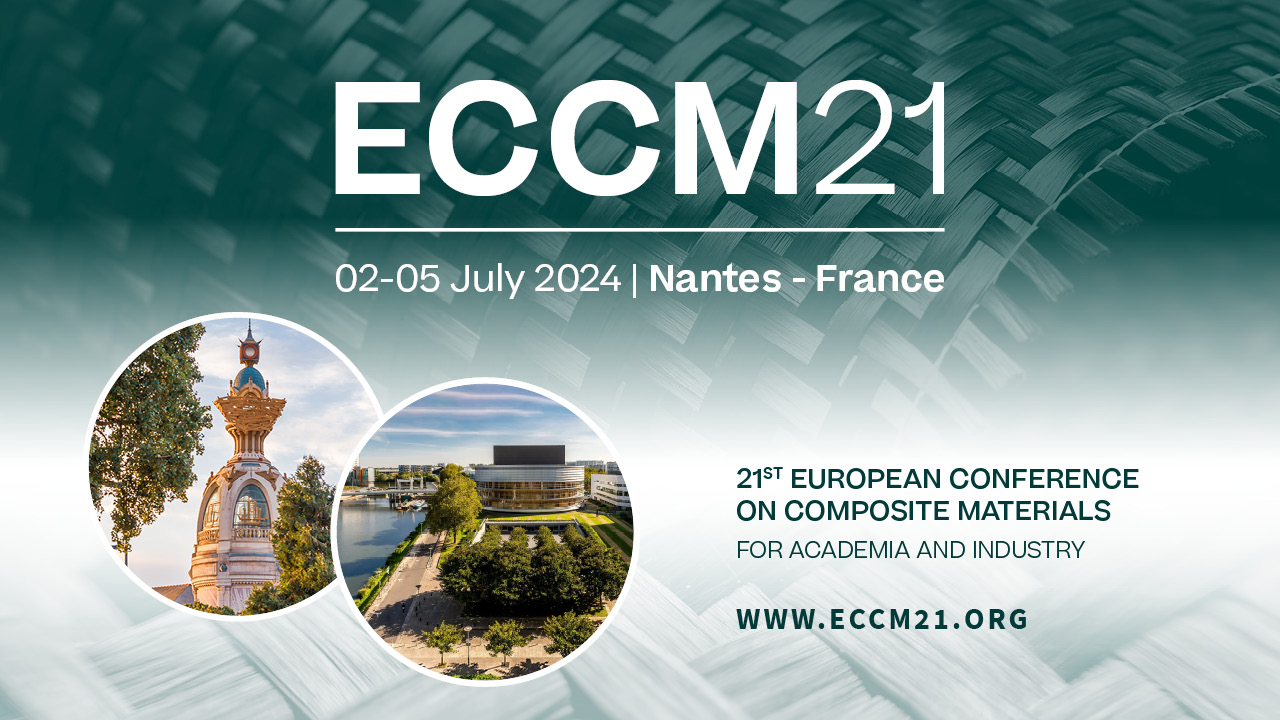Bioinspired 4D printed shape-changing metacomposites for programmable structural morphing
Topic(s) : Special Sessions
Co-authors :
Antoine LE DUIGOU (FRANCE), Fabrizio SCARPA , C. COMBESCURE , J. DESCHAMPS , Mickael CASTRO (FRANCE), Ugo LAFONT (NETHERLANDS)Abstract :
The demands of the space environment, including extreme remoteness and environmental conditions, are driving engineers to develop structures and infra-structures that are designed to operate autonomously. These include Smart structures, which are currently based on electromechanical paradigms that use energy for standby, sensing and motor drive functions. Future intelligent structures and materials designed for applications in harsh environments will have to react autonomously and, above all, adapt to their environment in order to reduce maintenance problems and optimise performance during use, respectively [1].
Biological structures exhibit dual properties, combining passive shape alteration with robust force generation through intricate composite and hierarchical architectures.
Biomimicry therefore appears to be a relevant solution that can make a substantial contribution to the transition to a green economy [2], in various technical fields where the extreme environment is a limiting factor. Natural fibers, with their tubular cellular structure and responsive polysaccharidic components, have inspired the design of pneumatic tubular soft composite actuators [3]. However, there has been no development of passive structural actuation until now. 4D printing has opened the door for smart materials and metacomposites, but they are mostly limited to 2D planar architectures. In this study, we drew inspiration from natural fiber cell walls to create a novel 4D printed metacomposite with a tubular geometry.
This metacomposite combines high mechanical performance with the shape-shifting ability of thermally active polymers. We used a rotative printer to combine continuous carbon fiber and PA6.6 polymer in a manner similar to the structure of cellulose microfibrils in natural fiber cell walls. The resulting 4D printed tubular metacomposites exhibit rotation and torque in response to large thermal variations, due to their anisotropic asymmetric architecture. We developed an experimental procedure to characterize the influence of mesostructural and architectural parameters on the morphing ability. These functional materials demonstrate energy density values comparable to shape memory alloys when normalized by stiffness. Additionally, we present a proof of concept for an autonomous solar tracker or reflector using the proposed metacomposite, showcasing its potential for designing innovative autonomous assemblies for structural morphing in large temperature variation environnement such as space.
Biological structures exhibit dual properties, combining passive shape alteration with robust force generation through intricate composite and hierarchical architectures.
Biomimicry therefore appears to be a relevant solution that can make a substantial contribution to the transition to a green economy [2], in various technical fields where the extreme environment is a limiting factor. Natural fibers, with their tubular cellular structure and responsive polysaccharidic components, have inspired the design of pneumatic tubular soft composite actuators [3]. However, there has been no development of passive structural actuation until now. 4D printing has opened the door for smart materials and metacomposites, but they are mostly limited to 2D planar architectures. In this study, we drew inspiration from natural fiber cell walls to create a novel 4D printed metacomposite with a tubular geometry.
This metacomposite combines high mechanical performance with the shape-shifting ability of thermally active polymers. We used a rotative printer to combine continuous carbon fiber and PA6.6 polymer in a manner similar to the structure of cellulose microfibrils in natural fiber cell walls. The resulting 4D printed tubular metacomposites exhibit rotation and torque in response to large thermal variations, due to their anisotropic asymmetric architecture. We developed an experimental procedure to characterize the influence of mesostructural and architectural parameters on the morphing ability. These functional materials demonstrate energy density values comparable to shape memory alloys when normalized by stiffness. Additionally, we present a proof of concept for an autonomous solar tracker or reflector using the proposed metacomposite, showcasing its potential for designing innovative autonomous assemblies for structural morphing in large temperature variation environnement such as space.

